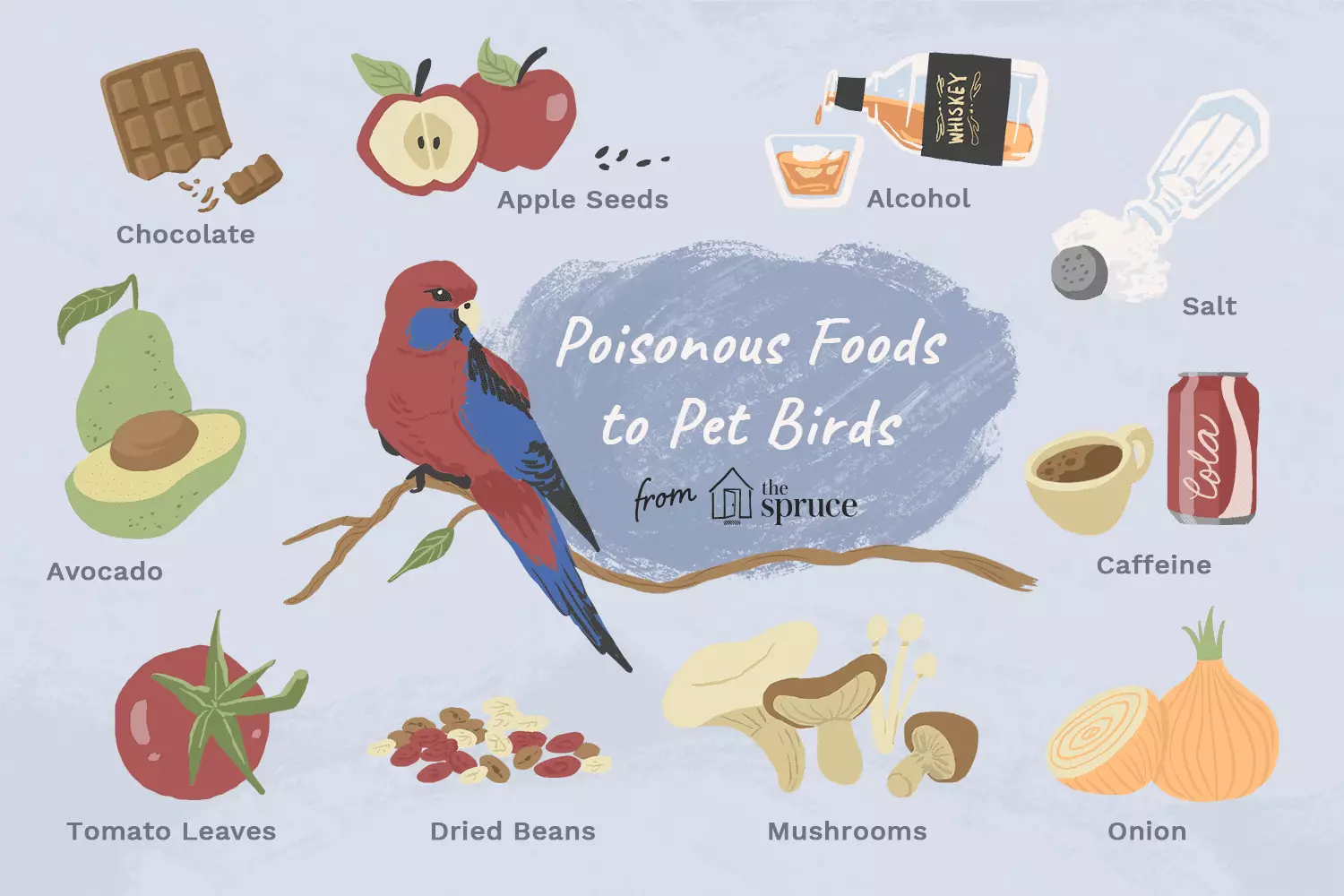Taking care of pet birds can be incredibly rewarding, offering companionship and joy to bird lovers worldwide. However, as many pet owners know, birds have specific dietary needs that must be met for optimal health. Even seemingly benign human foods can become dangerous, and being aware of what can harm these delicate creatures is crucial. This article focuses on key food items that can pose serious risks to pet birds, exploring the potential hazards and ways to ensure feathered companions remain healthy.
Chocolate is often celebrated as a beloved treat for humans, but it should never be shared with pet birds. The toxicity of chocolate arises due to a compound called theobromine, which birds cannot metabolize effectively. Symptoms of chocolate poisoning may begin with gastrointestinal distress, manifesting as vomiting and diarrhea. As exposure escalates, the central nervous system becomes involved, resulting in severe consequences such as seizures or even death. Bird owners must never underestimate the danger that chocolate presents, regardless of its enticing aroma and flavor for humans.
While many fruits can be safely enjoyed by pet birds, some pose severe risks, notably apples and other members of the rose family, such as cherries and peaches. The seeds of these fruits contain trace amounts of cyanide, which can be fatal if ingested. It is essential for bird owners to take precautions by coring and thoroughly cleaning any fruit shared with their pets to eliminate pesticides or toxic components. Responsible feeding habits promote a healthy diet while avoiding potential hazards hidden within seemingly harmless fruits.
It may seem unfathomable to offer a bird an alcoholic drink, yet incidents of alcohol poisoning have occurred, particularly with free-roaming birds who accidentally consume leftover cocktails. The consequences of alcohol ingestion in birds are dire, as it depresses central organ functions and can lead to death. The takeaway for bird owners is clear: During gatherings where alcohol is served, it’s vital to ensure birds are confined safely to their cages, thereby preventing any accidental access to harmful substances.
Salt is necessary for all living beings in moderation, but excessive sodium intake can have catastrophic effects on birds. Birds who consume salty foods may suffer from excessive thirst, dehydration, or even severe kidney issues — all leading to eventual death. Bird owners should closely monitor the amount of salty treats provided in their pets’ diets and strive for a balanced nutritional intake that emphasizes natural, wholesome foods.
The avocado, a popular fruit for humans, poses potential dangers for pet birds. Various parts of the avocado, especially the skin and pit, are known to induce severe complications, including cardiac distress that can culminate in heart failure. While opinions on the toxicity of avocados vary, a cautious approach is advisable. Keeping all avocado products away from birds is a safe strategy that minimizes unnecessary risks.
Some foods that might seem innocent, such as mushrooms and tomatoes, can wreak havoc on a bird’s digestive system. Certain mushroom varieties can cause severe liver issues, while tomatoes must be served with caution: the green parts of the plant are toxic. Bird owners must be vigilant in offering only the safe fruit portions and monitor for any adverse reactions to these prevalent foods.
Caffeinated drinks present another significant threat to pet birds. Products like soda, coffee, and tea can disrupt a bird’s heart rate and lead to various cardiac complications. Instead of caffeinated beverages, owners can provide healthy alternatives like natural fruit or vegetable juices or fresh smoothies, which can nurture and invigorate their feathered friends without harmful side effects.
While a sprinkle of onion or garlic powder may enhance a meal for humans, these foods can pose major risks to birds. Excessive consumption can lead to gastrointestinal disturbances and more severe issues like hemolytic anemia, ultimately resulting in respiratory problems and death. Although small amounts may be tolerated, it’s best to steer clear of these ingredients to safeguard avian health.
Many birds enjoy cooked beans as a tasty treat, but raw or dried beans should be strictly avoided. They contain hemagglutinin, a potent toxin that is extremely harmful to birds. Ensuring that beans are always fully cooked before offering them can help prevent potential health crises.
Maintaining a healthy diet for pet birds involves more than just providing a variety of foods. It requires vigilance and a thorough understanding of what is safe and what poses dangers. By recognizing common food hazards and responsibly educating oneself about avian nutrition, bird owners can ensure a joyful and healthy life for their treasured companions.


Leave a Reply